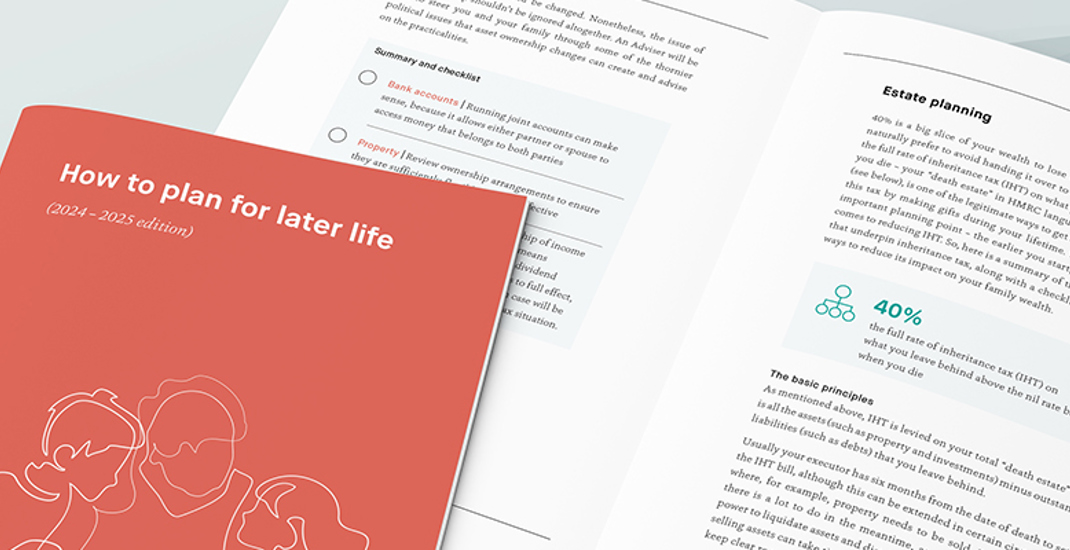Guidance
Guidance
All information here is general guidance, rather than personal advice and offers a light touch overview, rather than an exhaustive guide for decision making.
Create legal documents to support your wishes
Once you have established clear goals and a financial plan to cover your own requirements, including provision for any later life care that may be needed, you can plan for any transfer of wealth. As well as thinking about tax-efficient strategies to maximise what you can pass on, it is essential to create a comprehensive plan for your estate, including items like a Will, a letter of wishes, and a Power of Attorney, that legally determine the distribution of assets, and ensure your wishes are carried out.
Consider gifting strategies
Making lifetime gifts is probably the most common way to remove money from your estate, using your annual gift allowances and gifts within these allowances that fall immediately outside of your estate. Anything over these limits takes seven years to be effective for Inheritance Tax Planning, which means you would have to start thinking about gifting relatively early.
Gifting also allows you to see the impact that these gifts can have, whether it is supporting a property purchase or setting up a nest egg for a grandchild through a Junior ISA, which allows the savings to compound until they reach adulthood.
Sign up to receive the latest news from Killik & Co, including our Market Update and Killik Explains educational videos, and be one of the first to hear about upcoming events and webinars. You can unsubscribe at any time and learn how we use your data in our Privacy Policy.
Sign me up to the latest emails from Killik & Co. We will not share your details with anyone else and you can unsubscribe at any time by clicking “change preferences” at the bottom of our emails.
Capital at Risk
Capital at Risk
The value of your investments may rise or fall and you may not receive back the same amount you put in when you choose to cash out your savings. Tax treatment depends on the individual circumstances of each client and may be subject to change in the future.

Deciding whether to set up trusts for specific purposes
In certain circumstances, setting up a trust can be a tax-efficient way to help manage assets for specific purposes, such as education funds for grandchildren or charitable giving. Maintaining control of a trust can be complex, and lead to additional administration, so it is worth involving a Planner to check that a trust is the right vehicle for your needs and to help with the set-up.
Review and update your plans regularly
Having a Planner on hand, as well as an Investment Manager to manage your investments, can help you regularly monitor and update your financial plans, in line with any changes to legislation, your financial circumstances, your lifestyle or your wishes. Giving you peace of mind and more time to focus on the things that matter.
Communicate with and include your family
These sorts of conversations can feel uncomfortable but openly discussing your intentions and wishes with family members can avoid misunderstandings later. Whenever clients wish to, we are happy to include other members of the family in these planning meetings.
We find it can be helpful to introduce less financially experienced family members to some of these discussions earlier, to provide reassurances and aid future transition of responsibilities that will need to be picked up, as they become responsible for their own financial affairs in later life. That way, a part of any legacy can be the introductions, tools and upskilling for families to manage their affairs, and the assets that they are gifted.
We have a range of Killik Explains educational videos on this subject of legacy and intergenerational wealth transfer.


Conclusions
Nobody knows your family and your wishes better than you. But Killik & Co have a team of advisers, from Wealth Planners and specialists in Trusts, Tax and Estate Planning services, to help plan, advise and execute on the most appropriate options available to you.
If you would like to understand more about this, we would be happy to arrange a conversation with one of our Advisers.






